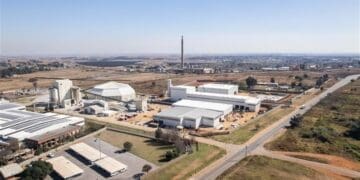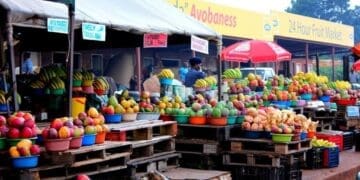Four young African innovators are in the spotlight for developing solutions that could significantly boost small businesses, agriculture, and job creation across the continent. The Mandela Rhodes Foundation this week announced the finalists for the 2025 Äänit Prize, a prestigious social impact award that provides up to $100,000 (about R1.8 million) to scale sustainable, high-impact ventures. The winners will be revealed at a Cape Town event on Friday, September 19.
Among the four finalists is South African entrepreneur Ntsako Mgiba, whose venture, JONGA, directly addresses one of the biggest threats to township economies – crime. Many township-based SMEs are forced to shut their doors or reduce operating hours due to repeated break-ins and theft, which erode their profits and limit growth. These losses also disrupt supply chains, as suppliers become hesitant to deliver to areas they view as unsafe. JONGA’s affordable, wireless alarm system offers a practical solution, connecting directly to local security services through AI integration and WhatsApp. With a three-month battery life and a compact design suited for areas with unreliable electricity, it empowers entrepreneurs to protect their businesses and sustain livelihoods.
“Crime has a huge impact on entrepreneurs’ confidence to scale their businesses,” Mgiba told Vutivi Business News. “When they’re forced to close early or can’t afford insurance, it directly reduces their trading hours and income.” His innovation could help curb the billions of rands that small businesses collectively lose to crime each year and keep township jobs secure.
From The Gambia, Fama Jallow is tackling the climate crisis with her venture Hisia, which uses AI and satellite technology to give smallholder farmers access to real-time weather and soil data. In rural economies where agriculture is often the backbone of SME activity, unpredictable climate patterns can devastate harvests and income.
“We are trying to empower communities and farmers in a way that helps them be resilient to the impacts of climate change. One of the ways Hisia can help SMEs is by enabling them to get access to carbon finance,” Jallow said.
This helps farmers adapt to climate shocks, stabilise their earnings and secure agricultural jobs.
Nigerian finalist Dr Kenechukwu Ikebuaku’s venture Mozisha addresses another urgent challenge for SMEs – the lack of skilled workers. With 375 million young people projected to enter Africa’s workforce by 2030 and youth unemployment already surpassing 40% in many countries, Mozisha provides an apprenticeship model that pairs job seekers with experienced mentors.
“We are empowering young Africans with training and mentorship to bridge the unemployment gap,” Ikebuaku said. “Our programme equips learners with real-world experience, preparing them for a fast-changing global economy.”
By building a pipeline of skilled employees, Mozisha ensures that SMEs can grow and create more jobs while equipping young people with the tools to become entrepreneurs themselves.
Similarly, fellow Nigerian finalist Dr Sunday Ochai’s EduRise focuses on children in conflict-affected areas, many of whom are excluded from education and economic opportunities. By restoring access to schooling and providing menstrual health and peacebuilding initiatives, EduRise lays the groundwork for a future generation of workers and business leaders who can help rebuild their communities.
“What made our model profound was that it required very little technology, which made it scalable and acceptable. Communities were involved from the start, and they quickly bought into it as their own intervention,” Ochai explained.
Mandela Rhodes Foundation CEO Judy Sikuza said the finalists demonstrate the kind of leadership and innovation needed to unlock Africa’s economic potential.
“What excites me about these finalists is not just the brilliance of their ideas but the courage to act where the need is greatest,” she said. “Although the ventures differ and the projects are at different stages in development, these finalists show us that leadership in action can drive transformation across education, climate change and technology, restoring dignity and opening new possibilities.”
The Äänit Prize attracted 29 entries this year, with ventures evaluated for their scalability, sustainability, and measurable impact. Last year’s winners included a platform that used AI to bridge African language barriers and a project that turned surplus fruit into income-generating products for smallholder farmers. The upcoming announcement will reveal whether one or more of this year’s innovators will receive the funding needed to expand their reach, offering hope that African-led solutions can drive growth for SMEs, agriculture, and job creation across the continent.


























































